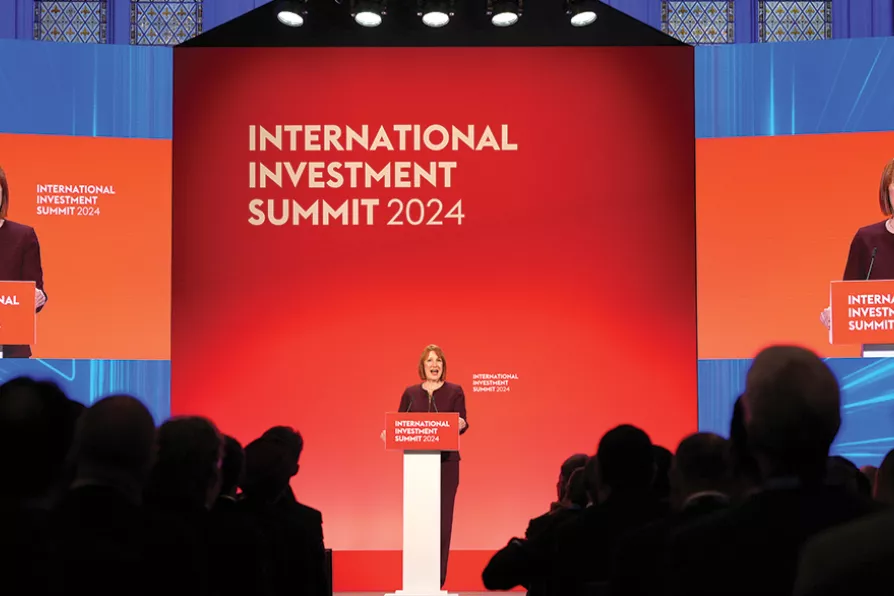Israel and the US talk as if they’ve won a victory, but the reality is that world opinion has turned decisively against the Israeli regime, says RAMZY BAROUD
Panto season is upon us
With the farce of self-imposed ‘fiscal rules’ hanging over next week’s Budget, MATT KERR is not hopeful that the Chancellor will play Mother Goose with the golden eggs

 FOR THE FEW NOT THE MANY? Chancellor of the Exchequer Rachel Reeves addresses up to 300 industry leaders at the International Investment Summit in London
FOR THE FEW NOT THE MANY? Chancellor of the Exchequer Rachel Reeves addresses up to 300 industry leaders at the International Investment Summit in London
THE nights are fair drawin’ in, as they say. The gales have arrived, knocking the withered leaves from the trees, only to be washed down a gully in the torrents of rain… promptly blocking the drain.
It’s the annual reminder, should any be now necessary at all, that services aren’t what they used to be. The only broom to sweep a gutter these days will be found in your cupboard, not the back of a council wagon.
Somewhere in a far-off place, a resident will emerge from her home next week onto the most immaculate street in the land. Regularly swept for litter, listening devices and explosives, only journalists and the endless procession of new MPs posing for selfies on the steps of No 10 litter Downing Street.
Similar stories

The first Budget of the Labour government falls far short of addressing Wales’s needs, maintaining austerity-era policies while providing inadequate funding for critical services and infrastructure, writes LUKE FLETCHER MS

Everything we’ve seen so far from Starmer and Reeves indicates that they remain committed to the economic orthodoxy of cuts imposed by the Tories – which is why we need to revitalise the anti-austerity movement, says BEN SELLERS of the People’s Assembly












